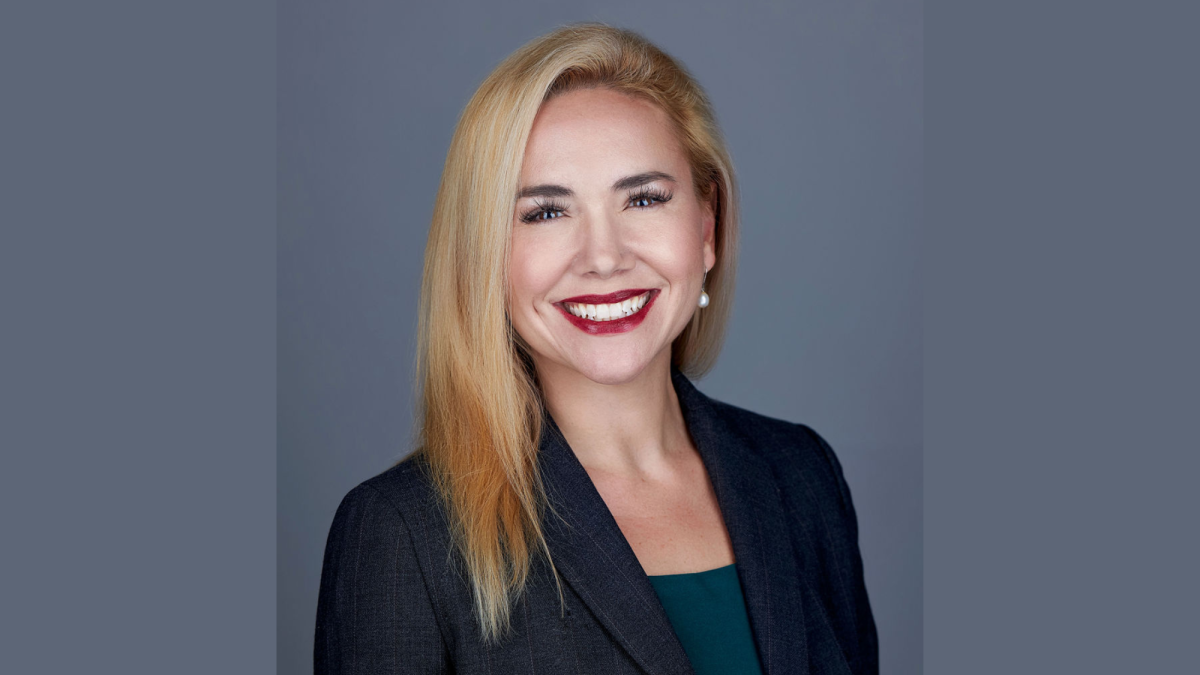ASU nursing degree serves alumna in leadership role at NIH

Rachele Peterson plays a key role in one of America’s most ambitious research projects.
When you hear the word "research," you might envision people in white coats looking through microscopes and working with test tubes in a lab somewhere. And while that element certainly exists, there’s an entire ecosystem outside of a lab that makes up the scientific research process.
Rachele Peterson doesn’t wear a white coat or work in a lab, but she does play a key role in one of America’s most ambitious research projects. Earlier this year, she was named the chief of staff for the All of Us Research Program at the National Institutes of Health.
"This is a historic effort to collect and study data from 1 million or more people living in the United States for 10 years or more,” she said.
Prior to this promotion, she served as a leader and principal investigator on multiple awards for the same program working on enrollment, engagement and the retention of the cohort as well as technology platforms for the consortium.
Helping to prepare her for a career in research was her degree from Arizona State University’s Edson College of Nursing and Health Innovation. She graduated in 2014 with a Master of Science in clinical research management.
“As a lifelong learner, I have continued to obtain additional education and certifications since graduating from Edson College. I achieved certifications as a CCRP (certified clinical research professional) and CRA (certified research administrator). Satisfied with my first graduate experience at ASU, I returned, and in 2021 I graduated with an executive MBA from the W. P. Carey School of Business.”
When she’s not busy working on this bold research effort, Peterson lends her time and expertise as a board member of the National Diaper Bank Network and a representative on its Policy, Program and Evaluation Committee. She stays connected to her alma mater by volunteering to serve as an alumni panelist, and previously served on the alumni board prior to accepting her new federal role.
Below, she reflects on her time in the clinical research management program and shares some best practices for students pursuing the degree.
Question: How did your degree program help you in achieving and maintaining the position you have now?
Answer: Completing my master's degree while working full time, I became very skilled in time management and efficient application of my effort. It was invaluable to have classes and educational content in my area of work, which I could apply in real time for the benefit of my educational experience and fellow students, but also to enrich my own workplace with new ideas.
I really appreciated getting to know my fellow students from across the country, learning about their careers and seeing the shared experiences among us in the field of clinical research. This is one of the best and most important fields for young professionals to consider. Graduate education is essential to continued career progression in the field.
Q: What is a favorite memory from your time in your program?
A: I loved the flexibility provided to us in the selection of the capstone project. I created an onboarding and training program for new clinical research staff, which I have since used many times in my leadership roles as I build teams to great effect — and which I continue to update as new guidance is released.
Q: What advice would you give to students who are currently enrolled in the program?
A: Consider challenges or complex, unsolved problems in your job — use those scenarios broadly without identifying details for homework, group exercises or forum discussion. Not only will the deeper reflection help you, but you will benefit from the perspectives of others and in applying course material and process to your work.
To learn more about Edson College alumni activities, events and programming, visit the alumni section of the college's website.
More Health and medicine

Pathak selected to lead School of Technology for Public Health
Jyotishman Pathak, an internationally recognized leader in biomedical informatics and population health sciences, will be the…

ASU teams up with Maricopa County to address local life expectancy gap
Arizona State University’s College of Health Solutions is partnering with the Maricopa County Board of Supervisors to address a…

ASU professor named Rural Health Fellow
If you live in a major city, chances are you don’t spend much time thinking about what happens in smaller towns and rural areas.…